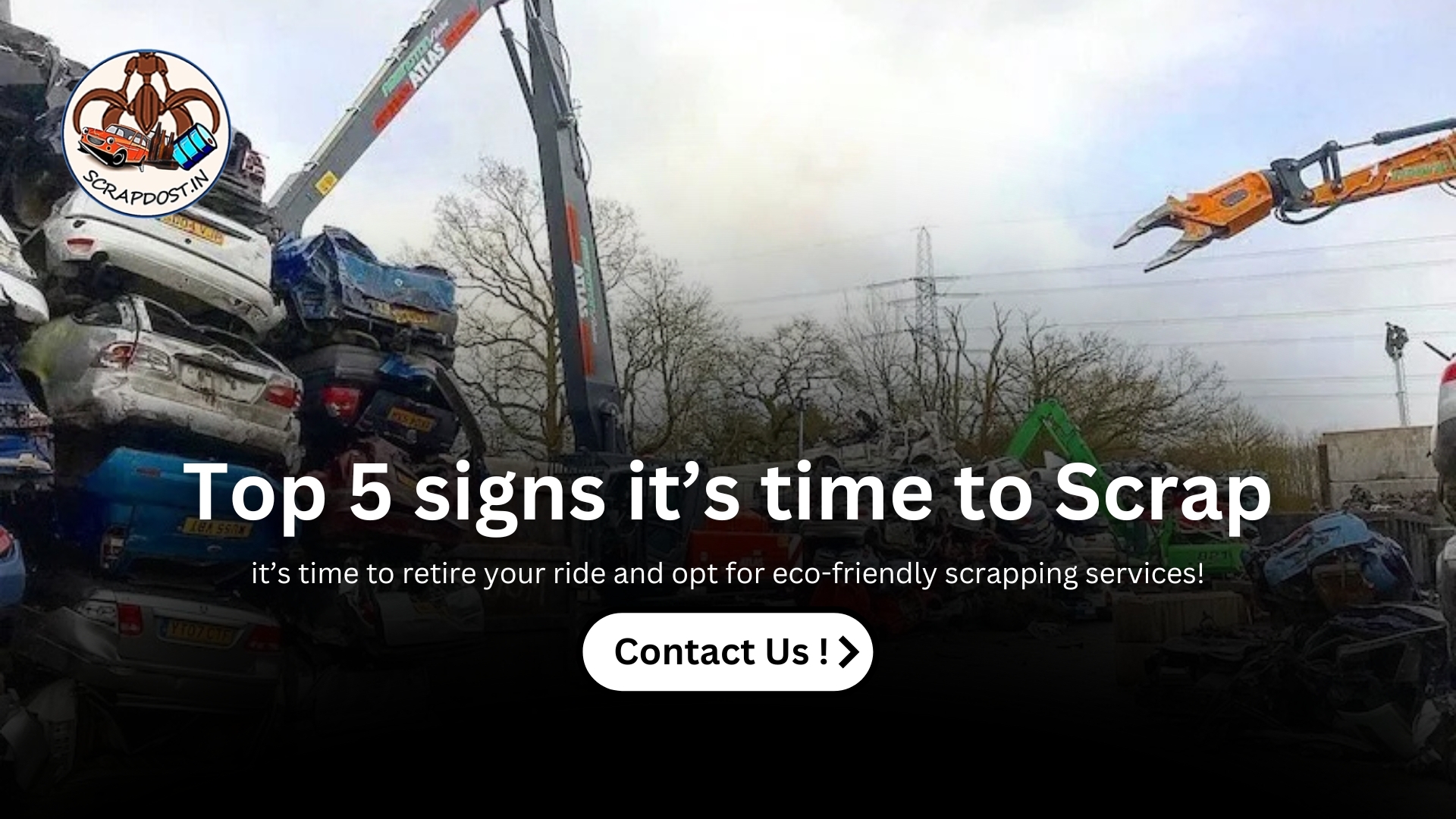Cars have a lifespan, and knowing when a particular four-wheeler should be replaced is integral for safety, financial, and environmental impacts. Sometimes, your four-wheeler develops signs that can make it very expensive to maintain, and this makes scrapping the right thing to do. In the first place, using a car comes with freedom from frequent repair costs and, most importantly, exposure to the risks of an accident. Also, scrapping is proactive in the realm of ecological considerations—only outdated cars that do not meet the standards of fuel efficiency are to be disposed of. This article will also look at the top 5 warning signs of when one should start thinking of scrapping their car, as well as useful tips to guide you.

Another clear signal that you need to let go of your car is when the costs of repairs push the actual value of the four-wheeler to the background. Similarly, big bills for an engine or transmission will soon mount up to a point where it will not be economical to continue with the car. However, constant’ Resets’ and other small changes also tell a story that your car is already done for. Therefore, rather than having your car outbox its value, it is a good time to scrap the four-wheeler. It is better to scrap some cars at times so that one cannot be involved in a deal where the car will continue to develop more faults than having the advantage of having it.
There is nothing wrong with a car that repeatedly breaks down, and if this is the situation, then it is high time you let go of the motorcar. Besides, if such breakdowns recur or are repeated after they have been repaired severally, then definitely the reliability of the car is affected. However, in this case, it is not just an inconvenience but also additional costs of towing the four-wheeler, fixing it, and getting another car to use. Second, due to frequent failures, it is challenging to know when exactly the failure is going to occur, and if it appears while driving, it becomes dangerous. Lastly, when breakdowns have become a regular occurrence, leaving your car’s carcass by the roadside is the only viable way of avoiding even more trouble and losses later on.
Another indicator that it is time for change is when new and complex safety measures start to break down or are redundant. In addition, such components are the airbags, brakes, and other components considered to be crucial for every car. Should, after being repaired, these features fail to function as they should, the car becomes a menace to the roads. For instance, older models are not equipped with the modern enhanced technology safety features and are, therefore, more hazardous during an accident. This is why deciding to junk a car that has some unsafe features is the best move to make since one's and other people’s lives are at stake.
This means that if your car continuously fails emissions tests, then the engine and exhaust systems are wearing out. Therefore, the car can emit more overall pollutant emissions into the environment. Also, a four-wheeler might just be confiscated if it has failed the emissions tests consecutively or be prohibited from road use if the owner constantly incurs fines. This in turn introduces stress and expense to the process of maintaining a vehicle that is no longer eco-friendly. Hence, instead of driving a car that fails the emission tests, these problems are avoided, and at the same time, by recycling the car’s parts, one reduces his/her carbon footprint.
There is no mistaking when the structures become severely rusted or when they exhibit structural damage; it means that the frame and many other critical components of a car are dangerous. If left unattended, rust degrades areas including the frame, suspension, and fuel tank of a vehicle to the extent that it poses a danger on the roads. Further, the cost of restoring cars associated with rust damages is high since the rust affects nearly all parts of the four-wheeler and, particularly, if it penetrates crucial parts of the motorcar. Therefore, if rust has weakened the body of your car, it is time for scrapping. Tin-can dumping is wasteful because it means that usable materials can be taken and recycled instead of remaining in a state where they pollute the environment.
Recognizing these signs early can help you make a knowledgeable decision about when it’s time to scrap your car. Ultimately, scrapping is a responsible way to dispose of a vehicle that no longer serves you safely or cost-effectively. Moreover, working with a relied-on corporation like Scrapdost ensures that your auto is recycled efficiently and its components are used in an environmentally pleasant manner. In the end, Scrapdost provides the ideal coaching and support to make scrapping your auto a simple and beneficial process, both for you and for the planet.
© 2026 ScrapDost